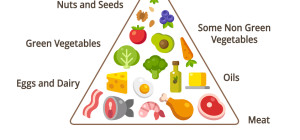 In the case of supplement manufacturing, a "claim" is a statement or assertion that a product can provide some specific benefit or contains a certain amount of a nutrient. Confusion often exists about what type of claims can be made by Dietary Supplement business owners on their products.
In the case of supplement manufacturing, a "claim" is a statement or assertion that a product can provide some specific benefit or contains a certain amount of a nutrient. Confusion often exists about what type of claims can be made by Dietary Supplement business owners on their products.
It is illegal for a company selling a dietary supplement to promote or label their product to diagnose, cure, mitigate, treat or prevent any disease. A Health Claim is an explicit or implied characterization of a relationship between a substance and a disease or health related conditions and must be approved by the FDA. Any kind of promotion or labeling must be in accordance to the rules laid out by the Dietary Supplement Health and Education Act of 1994 (DSHEA) and corresponding implementing regulations issued by the FDA.
Types of Claims
There are three main types of claims that can be made for Dietary Supplements:
- Health claims
- Structure/function claims
- Nutrient content claims
What is a Health Claim?
You can make a health claim about your product but there are restrictions.
What exactly is a health claim?
A Health Claim is an explicit or implied characterization of a relationship between a substance and a disease or health related conditions and must be approved by the FDA.
Health Claims can be made only after the FDA has reviewed the research and clinical evidence behind that particular nutrient and determined that there is significant scientific agreement of the relationship between a substance and a disease. Once a Health Claim is approved, it is added to Code of Federal Regulations of the United States.
Here is an example:
“Adequate calcium throughout life, as part of a well-balanced diet, may reduce the risk of osteoporosis”
To place a Health Claim on your product label, the product must meet the criteria established by the FDA to allow the use of such Health Claim. This may include dosing, dissolution, source of the key ingredients, etc. Under DSHEA a manufacturer or distributor may also make a structure/function claim about their products.
What is a Structure or Function Claim?
A structure/function claim is a statement that describes the role of a nutrient or dietary ingredient intended to affect the structure or function in humans or that characterize the documented mechanism by which a nutrient or dietary ingredient acts to maintain such structure or function, provided that such statements are not disease claims. If an express or implied claim about a product is determined to be a disease claim by the FDA, the product will be subject to regulation as a drug and if all the drug requirements are not met, FDA can seize the product. All structure/function claims must be truthful and not misleading.
Examples of structure/function claims:
- Supports a healthy circulatory system
- Helps promote digestion
- Helps maintain cholesterol already within the normal range
- Helps support cartilage and joint function
You may market the product with a structure/function claim, the claim must include a mandatory disclaimer statement that is provided for in the law.
What is a nutrient claim?
The Nutrition Labeling and Education Act of 1990 (NLEA) established the use of Nutrient Content Claims for Foods, including Dietary Supplements. Nutrient Content Claims describe the level of a nutrient in a food or supplement, in terms of free, high, low or compare the level of a nutrient in a food to that of another food. Nutrient Content Claims must be made in accordance with FDA’s authorizing regulations. Additionally, in some cases, the amount of the specified nutrient per serving must also be stated. The FDA has to authorize any Nutrient Content Claims prior to their use on any foods or dietary supplements.
Examples of nutrient claims:
- Good source of calcium
- Contains Vitamin C
Conclusion
Not only does the FDA recall products violating general manufacturing practices (GMPs) but the FDA can also seize or ban products that make disease claims. The FDA has been active in holding supplement manufacturers and supplement business owners who provide the public with misleading health claims about their products responsible for these violations. Be sure to partner with a supplement manufacturer who works within a GMP-certified facility. Any other, is just not worth the risk. Supplement manufacturers, in addition to producing high-quality products, offer a variety of one-stop, brand-building solutions such as label design/printing, bottling, and secondary packaging services. Convenient order fulfillment and drop shipping services are also available upon request.
Contributed by https://www.nutrasciencelabs.com/








